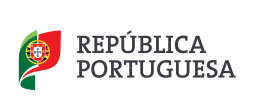Porto Summer School on Art & Cinema 2024
It Wasn't Cabral: Reviewing Silences and e Omissions
Curated by Lilia Schwarcz, Nuno Crespo and Daniel Ribas
17th until 21st Jun
School of Arts of Universidade Católica Portuguesa
call for workshops
– until 02nd of May
Teacher, forgive me
But I will speak
This year at school
Things will change
Nothing against you
Don't take it the wrong way
But the one who discovered Brazil
Was not Cabral.
— MC Carol
Concluding the annual program of conferences, concerts, exhibitions, and performances, the Summer School returns to Escola das Artes in June 2024.
Each year, the program is shaped around a pressing theme emerging from our contemporary world.
In previous editions, we explored how to Tread Lightly on the Earth (Ailton Krenak), examined the relationship between Art / Thought / Sound, and investigated the intersections between Art and Science.
In 2024, we turn our attention to historical omissions and silences.
The title is inspired by MC Carol’s song, in which the artist poetically highlights the urgency of reshaping Brazil’s historical narrative.
The Porto Summer School on Art & Cinema is an advanced course in contemporary cinema practices, combining critical thinking with direct engagement with leading filmmakers and artists.
Throughout five days, participants will explore a diverse range of creative processes and key global issues, presented by internationally renowned filmmakers and artists.
Their work will be discussed in dialogue with scholars, critics, and thinkers in a collaborative and immersive environment.
Each day is dedicated to a different artist or filmmaker, who will engage directly with participants through workshops, discussions, and informal exchanges.
In addition to daily workshops, the Summer School features a public program, including: Film screenings, exhibition openings, live performances.
These events will take place across various cultural spaces in Porto, bringing the Summer School’s discussions into the city’s artistic scene.
The Summer School is organized by the Escola das Artes and the Center for Research in Science and Technology of the Arts, Universidade Católica Portuguesa, in collaboration with the University of São Paulo and Princeton University.




